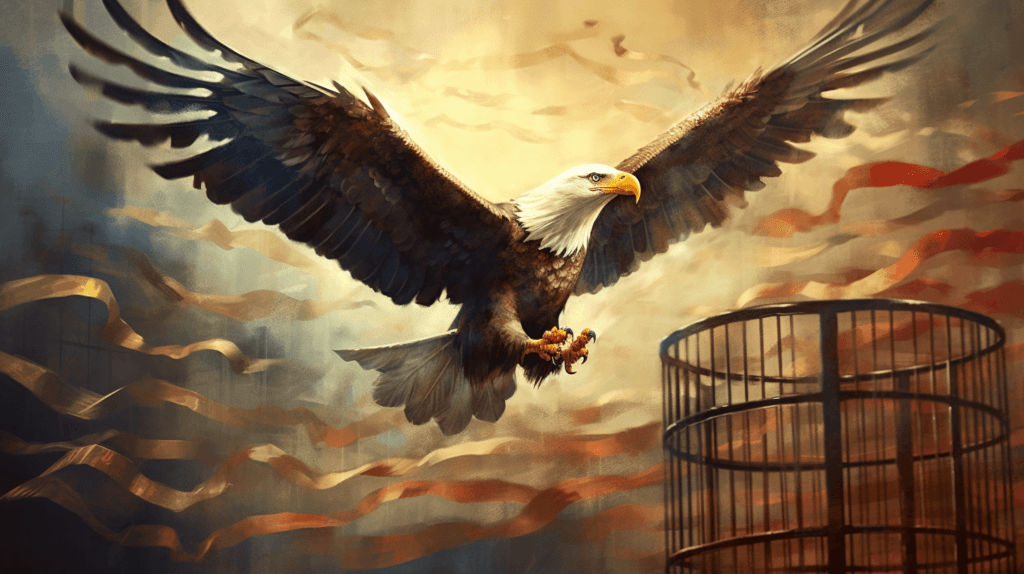Truth & Goodness
Sickles, Hammers, and Dollars: The Capitalist Miracle of “Red” Vietnam
01 March 2026

In his book ‘A Clockwork Orange’, Anthony Burgess contends: ‘A man who cannot choose ceases to be a man.’ He advocates for the notion that the ability to make choices is a fundamental aspect of humanity. However, this prompts the question: do we always want to make choices? How often do we find ourselves responding to difficult and demanding situations with a desire to evade making a choice? Is it even possible to escape the act of decision making, given that the very act of evasion is itself a choice?
Human beings are inherently free, and we manifest our freedom by making choices. Nonetheless, it is often the act of making specific decisions that proves to be the most challenging. We struggle to choose. We are plagued by doubts as to which option is the correct one to choose. In such moments, we may find ourselves wishing that someone else would make the choice on our behalf, thus relieving us of the burden of uncertainty and responsibility. On the one hand, we recognize that our freedom inherently requires us to make choices. Yet it is only during challenging life circumstances – when we must align ourselves with one side or another – that we fully comprehend the cost of this freedom.
German philosopher and psychologist Erich Fromm (1900‒1980) eloquently articulated the dilemmas of freedom, stating,
‘Freedom becomes an intolerable burden. It transforms into doubt, leading to a life devoid of meaning and purpose. In such times, a potent inclination emerges to escape this type of freedom, either through submission or by seeking any form of connection with people and the world that might offer respite from uncertainty, even at the expense of relinquishing freedom.’
Fromm’s words capture the existential drama of the human condition. It transpires that freedom does not necessarily equate to happiness, and the imperative to make choices can provoke a desire for escape within us. Freedom, once celebrated as a realm for self-realization and the pursuit of our goals, dreams, and desires, unveils its more demanding side. While freedom bestows much upon us, it also requires much from us. Making choices and bearing their consequences are inherent aspects of freedom, but not always self-evident or agreeable. When the emotional and psychological discomfort of decision-making becomes too great, we are often tempted to flee.
Read also:
French existentialist Jean-Paul Sartre (1905‒1980) offers an intriguing concept of escape from freedom through what he describes as the mechanism of ‘bad faith.’ In Sartre’s view, ‘Bad faith is, of course, a lie because it conceals the full freedom of engagement.’ When individuals lack the courage to confront challenging situations that necessitate defining their moral or existential stance, a mechanism arises that distorts reality. For example, the statement ‘I didn’t write the book because I didn’t have time’ may mask a more uncomfortable truth: ‘I didn’t write the book because I didn’t want to. I was lazy.’ Another instance: ‘I smoke because I like it’ might actually signify, ‘I smoke because I lack the willpower to quit.’ Similarly, the claim ‘My obesity results from genetic factors’ is an exercise in bad faith if, in truth, it serves as an evasion from acknowledging an inability to resist candy or a lack of effort or willpower to improve one’s appearance.
When Sartre discusses fleeing from engagement in one’s life, he primarily refers to avoiding self-awareness. How often do we retreat from confronting the truth about ourselves simply because it is easier or more convenient? Sartre firmly believes that our freedom is actualized through the choices we make, which often come with considerable emotional or psychological strain. Yet, evading decisions does not solve the problem, and crucially, it reflects moral weakness. One might attempt to escape freedom (choice, decision, self-definition), but such avoidance inevitably leads to a life lived in illusion.

The phenomenon of escaping from self-determined choices by imitating others is as relevant in today’s world as Jean-Paul Sartre’s concept of ‘bad faith’. Albert Paine (1861‒1937), an American writer and member of the Pulitzer Prize Committee, once observed, ‘When given the freedom to choose, people immediately begin to imitate others.’ Today, individuals often find themselves following the crowd, forsaking their own opinions and aligning their choices with the majority. They may lack the courage to advocate for, or even voice, their own perspectives when these differ from prevailing opinions, opting for safety and convenience.
When examining the human condition in the 21st century, it becomes apparent that contentment is often difficult to attain. We reject determinism because we fear being controlled by external forces. Moreover, a worldview based on predestination, with an immutable order, is even more disconcerting as it significantly restricts our autonomy and ability to shape our lives. However, when we are granted freedom and the power of choice, we often feel overwhelmed and prefer to delegate decisions to others. It is crucial to recognize that freedom endures only as long as we exercise it. If someone were to absolve us of the often-challenging and painful responsibility of making choices, we would concurrently lose our freedom. Such a scenario would be the most disheartening of all possible visions of our existence.
You may also be interested in:
Truth & Goodness
01 March 2026



Zmień tryb na ciemny